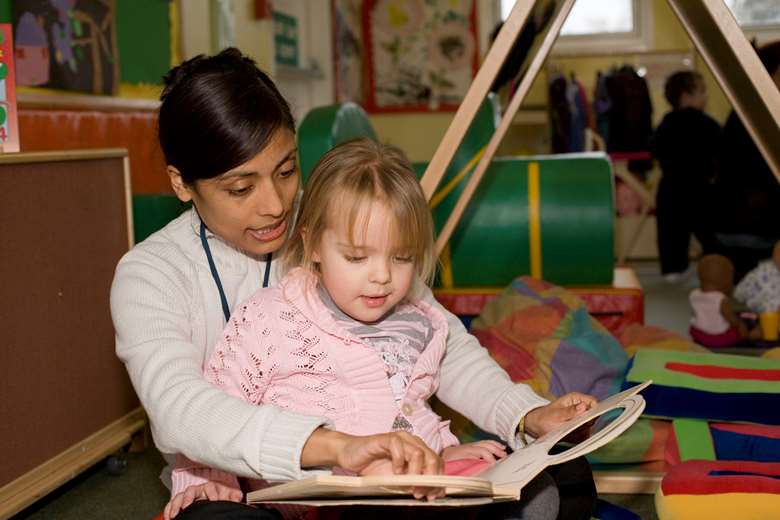Peer-to-peer support boosts early years services
Gabriella Jozwiak
Tuesday, July 30, 2013
A government-funded early years support programme has helped practitioners improve services for children and families, according to research.

A study of the Early Years Peer-to-Peer Support Programme found local authority providers reported better understanding of the early years curriculum (early years foundation stage), more effective parental engagement in their child’s learning, and improved delivery of frontline services.
Provided by the Early Childhood Unit at charity the National Children’s Bureau (NCB) in partnership with the Centre for Excellence and Outcomes, the two-year scheme assigned an external early years specialist to a local authority or nursery chain provider to give support and advice.
A total of 80 assignments were implemented across England during the project to 64 providers. Specialists offered a variety of approaches to suit settings' needs, including training days, face-to-face and telephone assistance or provision of resources.
Data collected from more than 40 per cent of the practitioners involved in the project all reported positive results.
The report states: “Local authorities believed that without the peer-to-peer support they might not have achieved their desired goal or outcome at all, in the case of being trained, or they would not have achieved it so quickly, or so effectively.”
NCB’s programme director for early years Joyce Connor said the project had also helped some local authorities work with childminders and private, voluntary and independent (PVI) sector settings.
“The team developed their knowledge of how other local authorities support childminders and the PVI settings and this enabled them to develop their partnership working with all providers,” she said.
Connor added that NCB was continuing to offer the support to local authorities, early years settings and clusters of settings, including schools.
“We are finding particular interest in support to deliver literacy interventions following initial free Raising Early Achievement in Literacy training - a DfE funded training,” she added.
The report's results were compiled using the results of an online survey and 27 end-of-assignment feedback forms.
Fifteen recipients of peer-to-peer support (41 per cent) responded to the survey. Of the 64 providers involved in the project, 37 had competed their assignment when the research was conducted.




